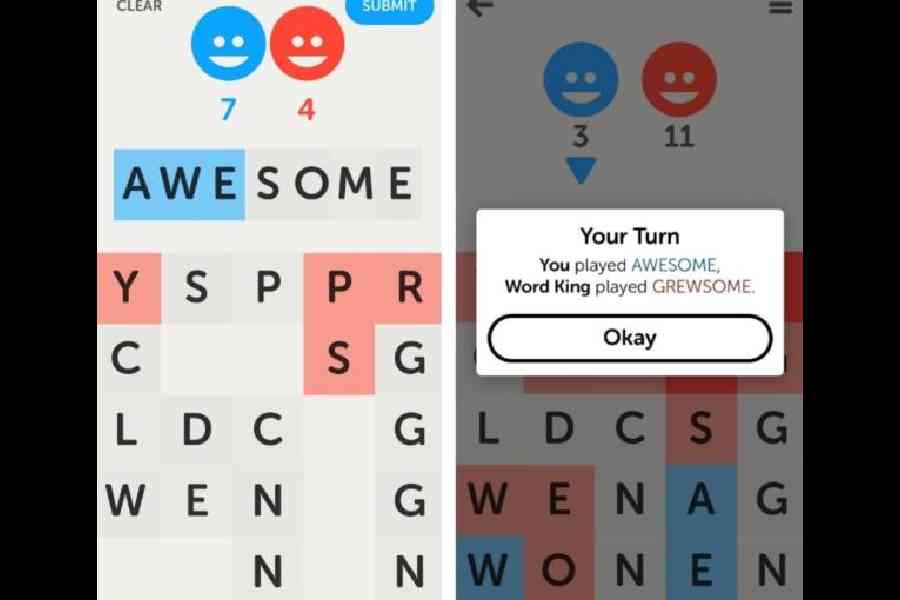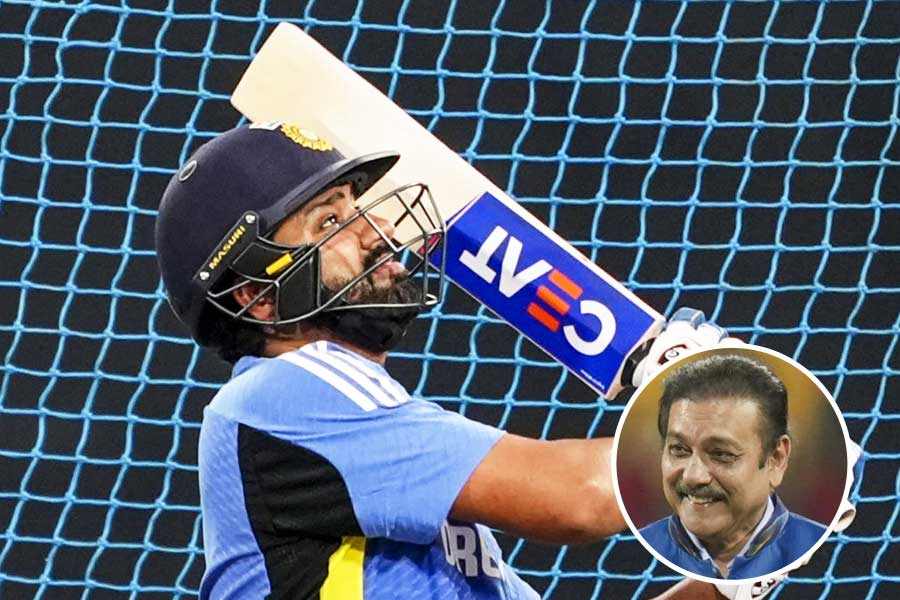When my partner introduced me to Letterpress, I was initially taken aback by its interesting design. Over time, though, I wondered what the game was trying to be. To start with, Letterpress claims to be a word game. This is partly true but at its core, it’s really about territory control.
Your weapon of choice are words you make using letters arranged in a 5x5 grid. When you connect the letters to make a word, you claim the squares in which the letters sit. Your goal is to claim a majority of the squares on the board before your opponent does.
So is it a word game, or a territory control game with word elements? It could be both but the emphasis falls, ultimately, upon strategy, which comes off as a tad misleading.
Claiming a square rewards you with one point; if it’s an opponent’s, a point is deducted from their score, while you earn a point. Hence, the ownership of these squares goes back and forth between you and your opponent in that they can still make words using the letters you used. You’ll know which squares are yours by colour: 1) green is yours, 2) red is your opponent’s, and 3) colourless is up for grabs.
The intensity of green and red will also hint upon which squares are well-protected. Dark-coloured squares tell you it’s soft-locked — meaning, you can still make a word with its letter, but you neither get a point for that square nor do you claim the square for yourself. You’ll need to first claim the light-coloured squares adjacent to it to make that happen. You also, fairly enough, don’t get points for reusing letters you’ve already claimed.
The complexity arrives with the rule of not making similar words. To take a simple example, if a player claims the word “ban”, the other player can’t play the word “bans” but they could play “banning” — this raises the stakes and the demand for knowledge.
Because of these game elements, creating the most plausible word extensions is not a valid strategy in Letterpress. It all comes down to how many squares you are in control of. So the possibility of attaining “second chances” dissipates if you make the “wrong” words, whatever they could be, since every new game offers a new range of letters. So while there could be a linear strategy to the game, it’s certainly not easy to discover it. Saying that, Letterpress feels like a game that’s geared towards more high-level gameplay you wouldn’t expect in a word game — for better or worse.
VERDICT: While still fun in its own right, Letterpress is more a strategy game than a word game. I would rate it six out of 10.










